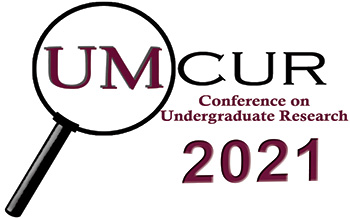Project Type
Presentation
Faculty Mentor’s Full Name
Kyle Volk
Faculty Mentor’s Department
History
Abstract / Artist's Statement
In late March of 1959, thousands of demonstrators in Tibet began a violent revolt against Communist China in response to perceived threats against their religious practice and way of life. News of the Tibetan Uprising spread across a Cold War consensus-shaped American media. While scholarship on US-Tibet relations has examined CIA involvement in the Uprising and debates in the United Nations in 1959, few works have analyzed how the American public processed and discussed the revolt. This project investigates the impact of the Uprising on American political culture and the geopolitics of human rights. Newspaper and periodical writers interpreted the Tibet crisis as continued evidence that communism threatened global self-determination and the freedom of religion. Journalists often framed the Tibetan rebellion as a religious and humanitarian struggle against the atheistic communists, comparing their plight to the failed 1956 Hungarian Revolution. Yet, this time at stake were the rights of non-christian and non-white individuals. As commentators urged the American government to intervene militarily or diplomatically and save the Tibetan “freedom fighters,” they shifted from portraying them in a predominantly exoticized lens to one that was increasingly political. Moreover, they also suggested that their government’s ability to protect human liberties should be exported and asserted abroad. Underpinning those arguments were assumptions that human rights had been achieved at home, at least in contrast to beliefs that communism continually infringed upon them in other parts of the world. This paper ultimately argues that the Tibetan Uprising informed Americans’ perceptions of communism and of their identity as a global power and nation.
Category
Humanities
“The Himalayan Hungary Gives the Free World a New Torch in the Cold War”: The Tibetan Uprising and American Identity at Home and Abroad, 1959-1962
In late March of 1959, thousands of demonstrators in Tibet began a violent revolt against Communist China in response to perceived threats against their religious practice and way of life. News of the Tibetan Uprising spread across a Cold War consensus-shaped American media. While scholarship on US-Tibet relations has examined CIA involvement in the Uprising and debates in the United Nations in 1959, few works have analyzed how the American public processed and discussed the revolt. This project investigates the impact of the Uprising on American political culture and the geopolitics of human rights. Newspaper and periodical writers interpreted the Tibet crisis as continued evidence that communism threatened global self-determination and the freedom of religion. Journalists often framed the Tibetan rebellion as a religious and humanitarian struggle against the atheistic communists, comparing their plight to the failed 1956 Hungarian Revolution. Yet, this time at stake were the rights of non-christian and non-white individuals. As commentators urged the American government to intervene militarily or diplomatically and save the Tibetan “freedom fighters,” they shifted from portraying them in a predominantly exoticized lens to one that was increasingly political. Moreover, they also suggested that their government’s ability to protect human liberties should be exported and asserted abroad. Underpinning those arguments were assumptions that human rights had been achieved at home, at least in contrast to beliefs that communism continually infringed upon them in other parts of the world. This paper ultimately argues that the Tibetan Uprising informed Americans’ perceptions of communism and of their identity as a global power and nation.
